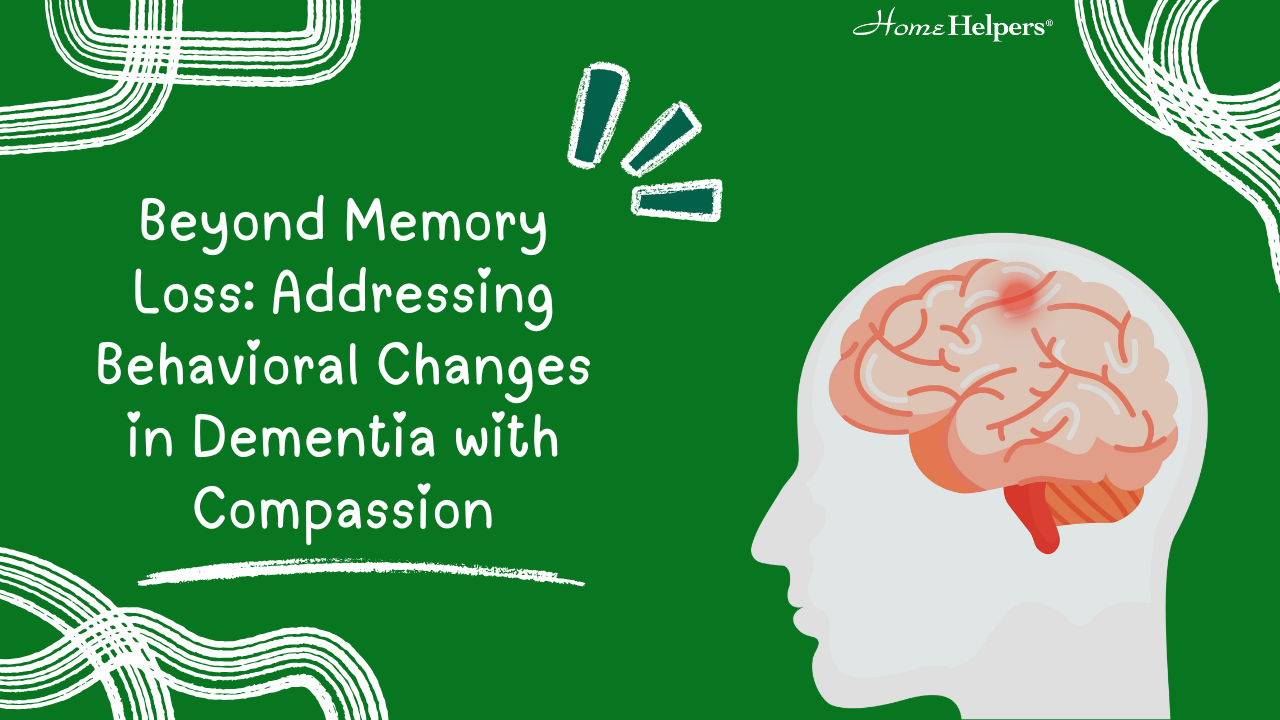Beyond Memory Loss: Addressing Behavioral Changes in Dementia with Compassion in the Northern Shenandoah Valley, VA

Author: Home Helpers Home Care
When we think of dementia, memory loss is often the first thing that comes to mind. However, families in the Northern Shenandoah Valley often find that the most difficult changes involve mood, personality, and behavior. A loved one who once had a calm temperament may now experience moments of agitation, anxiety, or withdrawal. These shifts can be emotionally draining, but understanding their cause — and responding with compassion — can make a profound difference.
Why Behavioral Changes Occur
Dementia impacts brain regions tied to emotional control, decision-making, and behavior. This can result in:
- Misunderstanding or Confusion – Misinterpreting interactions or surroundings.
- Heightened Anxiety or Fear – Triggered by unfamiliar faces, settings, or routines.
- Irritability or Aggression – Often due to discomfort, pain, or overstimulation.
- Loss of Initiative – Disinterest in once-enjoyed activities.
The Alzheimer’s Association (2024) stresses that these changes are part of the disease, not intentional behavior.
Compassionate Response Strategies
When behaviors shift, focus on identifying needs rather than “fixing” the person:
- Find and Remove Triggers – Look for discomfort, hunger, or excessive noise.
- Stay Calm – Use a relaxed tone and slow movements.
- Acknowledge Feelings – Let them know you understand their emotions.
- Redirect with Familiar Comforts – Guide toward an activity, room, or object they enjoy.
Building a Supportive Space
For families in Winchester, Front Royal, and surrounding communities:
- Simplify the environment to minimize overstimulation.
- Use soft, even lighting.
- Keep familiar keepsakes and photos nearby.
The National Institute on Aging (2023) highlights that predictability can significantly ease behavioral symptoms.
Supporting the Caregiver
Caregivers can experience burnout when managing behavioral changes. Protect your own health by:
- Using respite care services to take personal time.
- Connecting with caregiver support groups in the Northern Shenandoah Valley.
- Practicing mindfulness or gentle physical activity.
Home Helpers® Home Care of the Northern Shenandoah Valley offers dementia-trained caregivers who can step in to provide consistent, compassionate care — helping you focus on your relationship rather than constant care demands.
When More Support Is Needed
If challenging behaviors become more frequent or severe, consult your loved one’s physician for evaluation and care adjustments.
If your loved one in the Northern Shenandoah Valley is experiencing behavioral changes related to dementia, call Home Helpers® at 540-771-2555. Our expert team can create a personalized care plan to meet their needs with dignity and compassion.
References
Alzheimer’s Association. (2024). Behavioral and psychological symptoms of dementia (BPSD). https://www.alz.org/help-support/caregiving/stages-behaviors
National Institute on Aging. (2023). Caring for a person with dementia: Understanding behaviors. https://www.nia.nih.gov/health
